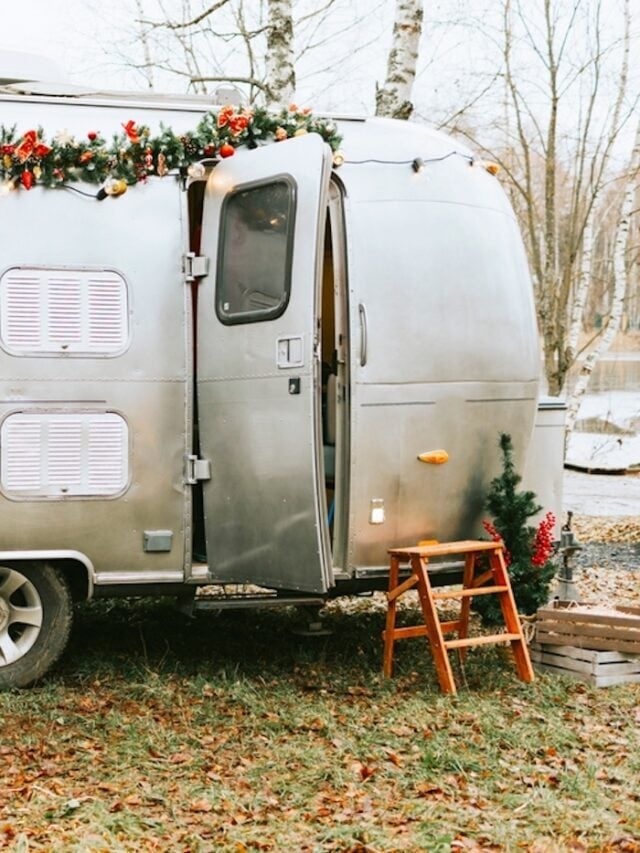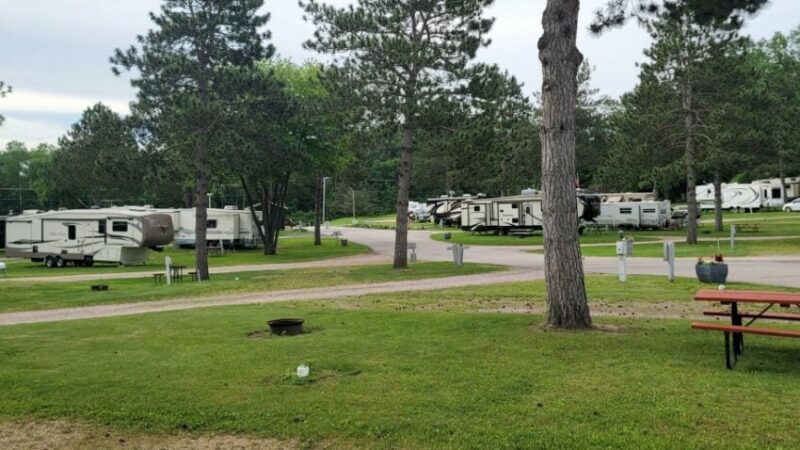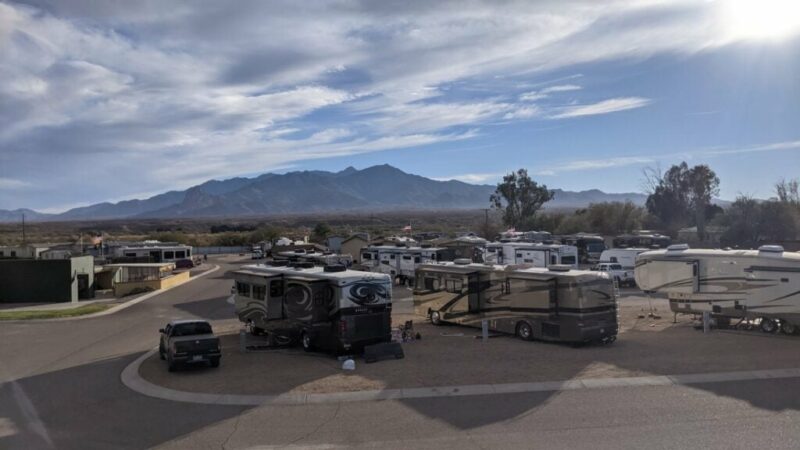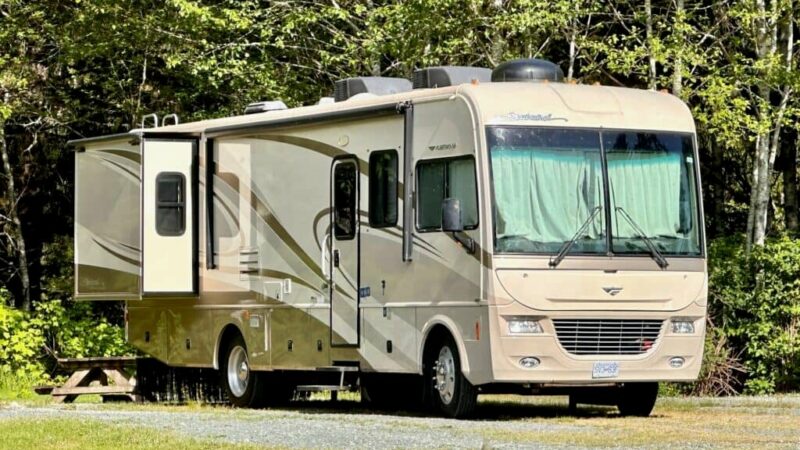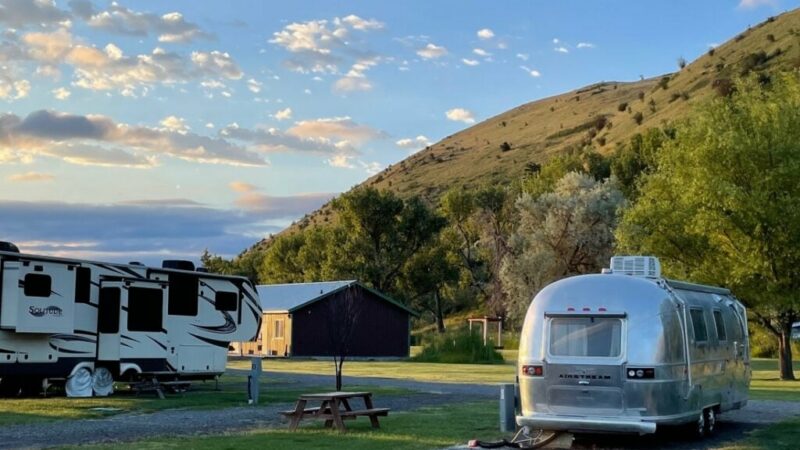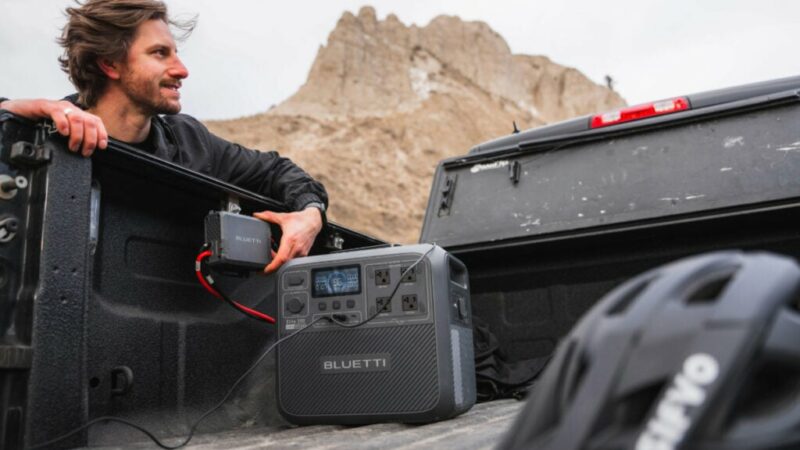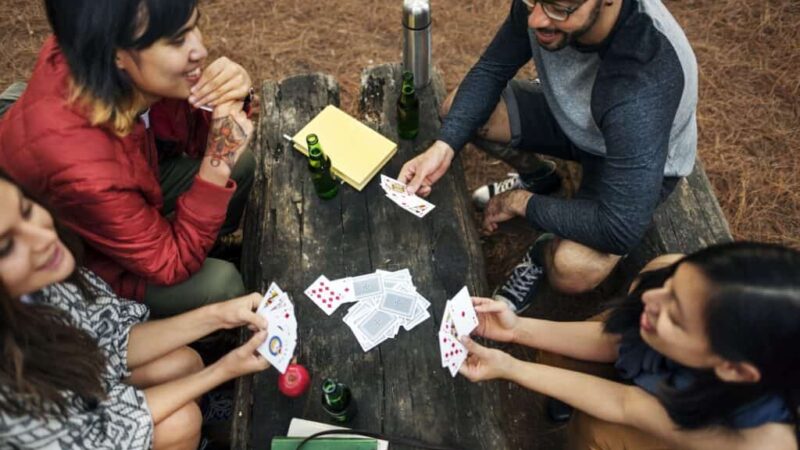A Guide To Moochdocking This Holiday Season
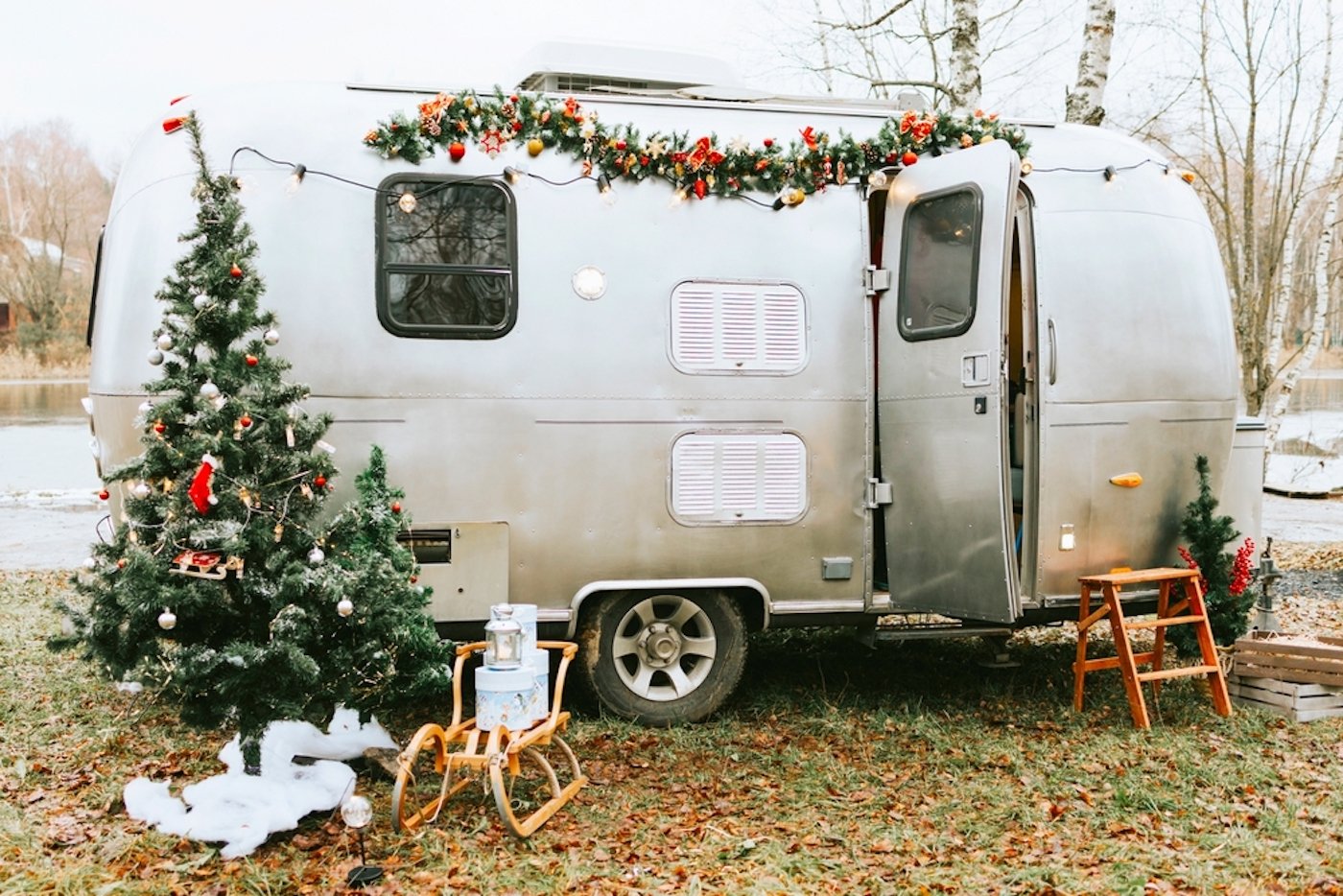
Moochdocking in your RV this holiday season could be the perfect way to visit friends or family. Photo from Shutterstock
Our Tops Tips For Moochdocking In Your RV
Moochdocking means camping in a friend’s or relative’s driveway in your own RV.
In its purest form, moochdocking is driveway camping, but you don’t necessarily have to camp in the driveway to moochdock. You could moochdock anywhere on a friend’s or relative’s property.
Moochdocking resembles boondocking, with one key difference that sets it apart. When you are moochdocking, you still get access to water, power, and Wi-Fi, whereas boondocking requires your RV to be self-sustaining.
In rare instances, your moochdocking host might even have a sewer inlet available for you to use while you camp. A lot of times, moochdockers shower and do laundry in their host’s home.
RVers have their own rolling guesthouse that they can bring to their host. This is particularly handy over the holiday season, when everyone wants to enjoy family time together. The family that is hosting the holiday celebrations may already have a lot on their plate without also having to find additional room for guests. For this reason, guests with RVs are usually more than welcome.
For many people, one advantage of bringing their own accommodations to holiday gatherings is being able to enjoy a spiked eggnog or two without having to worry about getting home safely. Moochdockers also have the advantage of retiring to their own comfy little nest when they are feeling overwhelmed by social activities with family members they otherwise don’t see very often.
Moochdocking etiquette
Moochdockers are usually welcome over the Christmas holidays. However, it’s a good idea to know about the rules of good moochdocking conduct. Here are a few things to know before you moochdock.
1. Always ask first
Don’t assume it’s okay to show up with your rig and camp out. Instead, ask your hosts if it’s okay to bring your RV.
When you arrive, here are some other questions to ask:
- Find out where the best place to park your RV will be before you set up camp.
- Ask if it’s okay to hook up to power, fill up with water, or use the host’s Wi-Fi if you need to.
- Be sure to ask if it’s okay to shower and do laundry in the house, if you intend to use those.
- Ask where to put your trash.
- Before you bring your pet, find out if they’ll be welcome too.
2. Offer to help out
Helping out with chores like cooking, babysitting, dog walking, or snow shoveling will make you an easy guest who will be welcome back next year. It could be a nice touch to invite your hosts to have dinner or breakfast at “your place” at some point during your stay.
3. Offer to contribute money for services
If you’re staying with friends or family, they’ll probably appreciate an offer to help contribute to their electric bill for the time you are hooked up.
4. Keep a neat and tidy campsite
Try to keep your stuff contained in your RV as much as possible. Don’t put bags of trash outside the RV for animals to potentially get into.
5. Don’t (ever) dump your tanks
Remember that Cousin Eddie scene in Christmas Vacation? Don’t be that guy. Not even with your gray tank. Arrive with empty tanks, and if they get full, take them to a dump station to empty.
Amenities
Assuming your hosts are okay with you using their power, water and Wi-Fi, there are some things you’ll want to know and a few things you’ll want to have on hand.
Here’s a minimal list of what to pack when moochdocking at a family member or friend’s house.
What to pack:
In addition to everything you normally pack to be comfortable in your RV, here is a list of must-have items:
- Freshwater drinking water hose or heated water hose
- Water pressure regulator
- 15-amp to 30-amp and/or 50-amp dogbone adapter
- A generator or alternate power source (in case power isn’t available)
- RV extension cord (in case you need it)
- Surge protector
- Receptacle tester
- Digital multimeter
- Shower toiletries and towels
- Laundry soap if needed
- A host/hostess gift
- Decorate your RV festively, in keeping with the holiday spirit
1. Water
In some cases, you can hook up to city water when you moochdock. If temperatures are below 32º F (0º C), you’ll need a heated water hose for this.
Usually, it’s easier to just fill your freshwater tank for a short-term stay. That way, your hose won’t be in anyone’s way. Fill your tank with a drinking water hose to avoid introducing carcinogenic chemicals and mold into your water supply.
If your RV is already winterized, you’ll probably want to leave the antifeeze in the water lines. You can always bring some 1-5 gallon water jugs for use in the RV.
Count on using about 3 gallons per person per day. Before your stay, ask your host to see if it’s okay to fill your water containers when you get there. Most hosts will be fine with letting you fill up some containers of water, but if they say “no”, you can fill them up before you get there.
2. Power
If you have a self-contained electrical system with an inverter, you won’t need to hook up to shore power. However, if you can’t produce your own power, or just don’t want to, knowing the following will get you the electricity you need and save your electrical system.
The first thing to know is this: Although your rig is either 30-amp or 50-amp, most moochdocking is done with 15-amps. A 15-amp electrical connection gives you just 1800 watts of AC electrical power, no matter how many amps your RV is. If you try to draw any more than 1800 watts, the line will overheat, and you’ll inconveniently flip a breaker in the house. This means you’ll need to be aware of how many watts every AC appliance in your RV uses and not run too many things at once.
Before you plug in, use a receptacle tester to ensure the outlet you are plugging into doesn’t have reverse polarity. Plugging into a power supply that has reverse polarity is very bad for everything in your RV’s AC electrical system. Reverse polarity can also cause RV hot skin, a condition where an RV’s metal parts conduct electricity that shocks anyone who touches them (sometimes fatally).
It’s always a good idea to use a surge protector to protect your RV’s electrical system, just in case the power supply is wired wrong or the power isn’t steady.
Even though your host has had an RV electrical outlet wired for you to plug into, should you use it? Maybe. However, you’ll need to make sure the outlet has 120 volts and not the 240 volts that is normal for a residential 30-amp power outlet.
Plugging into a 240-volt 30-amp power supply would blow up your RV’s electrical system. You can avoid this by using a digital multimeter set to AC to test the circuit before you plug in. Here’s a video that will tell you exactly how to do this.
Waste water
Always arrive with empty gray water and black water tanks. If they fill up, you’ll need to drive to a dump station to empty them.
What about the RV toilet?
If your RV is winterized and you want to keep it that way over the holidays, you have several options:
- With your host’s approval, make use of the bathroom in the house.
- Use a cassette toilet.
- Insert a Double Doodie Bag in your RV toilet to catch and manage waste instead of flushing it.
- Set up a five-gallon bucket with a toilet lid and a waste bag containing deordorizing, clumping cat litter. One option for this is a Luggable Loo toilet kit, which gives you everything you need for a bucket toilet.
Conclusion
Moochdocking for the holiday season is a great way to visit friends and family in your own portable guest accommodations.
You’ll get to see your family and friends while being a low-need guest who goes “home” at night. You’ll also get to squeeze just a little more RV camping into camping year that is always too short.
For help mapping out your route, look no further than RV LIFE Trip Wizard. This online planning tool makes it easy to plan an RV-safe route. It can also locate interesting sites along the way, all according to your travel preferences. Get RV LIFE Trip Wizard with its accompanying RV LIFE App, and start planning your adventure today!
Related articles:
The post A Guide To Moochdocking This Holiday Season appeared first on RV LIFE.

